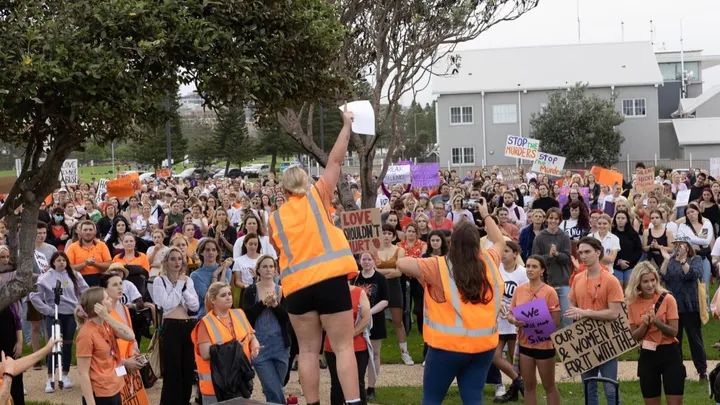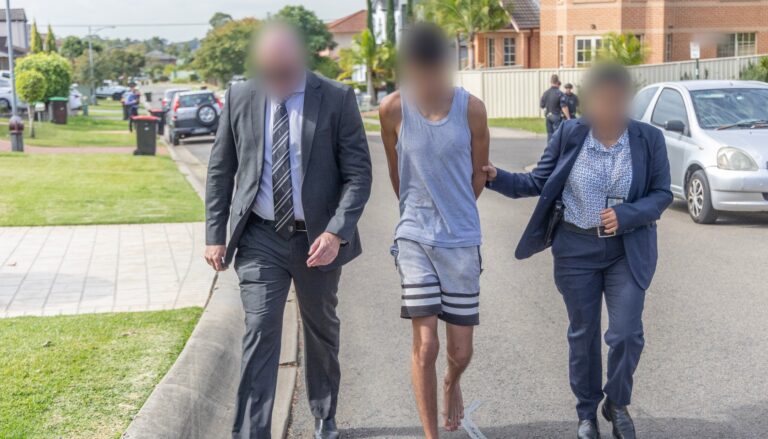
The long road home

Concerns remain that a lack of State and Federal Government funding is undermining the City of Sydney’s efforts to combat homelessness.
The City of Sydney, a historical supporter of reducing homelessness, said housing services are now at capacity. The City fears that without additional support and funding from State and Federal governments, homelessness will increase.
“Of our two main housing sources, Common Ground is now fully tenanted and Platform-70 is fully subscribed, so there’s a real risk that unless new opportunities open up we’ll see all the progress in reducing homelessness numbers lost,” said a City of Sydney spokesperson.
The City’s annual winter street count found 255 people sleeping rough last Tuesday night, after 274 were recorded last year. The count is held in an effort to gain funding from the State and Federal governments.
“[The street count is] used to lobby the NSW and Federal Governments for the necessary resources to ensure that every person experiencing homelessness is able to access a home of their own,” said a City of Sydney spokesperson.
The City aims to guarantee 15 per cent of all homes in the local government area are categorised as affordable or social housing by 2030. Its Affordable Rental Housing Strategy aims to deliver 3,000 affordable new homes.
“The City is doing all it can to support the supply of new affordable housing stock, but we need a commitment from the NSW and Federal Governments to ensure everyone has access to a safe and affordable place to live,” said a City of Sydney spokesperson.
Greens Councillor Irene Doutney said she expected the homeless numbers to rise again due to the current economic climate and lack of affordable housing.
“I think there is traditionally a decline in the street count during winter, but I still believe that there will be an inevitable rise,” she said. “I think this will happen because of the economic climate and the unaffordability of housing in the city.”
One former homeless man, David, said he had found permanent housing two years ago through the City’s Way2Home outreach program. He believes facilities on offer for the homeless are fraught with danger.
“Boarding houses are dangerous places to be,” said David. “One time I was staying over in a boarding house in Leichhardt and everyone around me was excessively drinking alcohol.”
“The people who were living next door to me attacked me in my own room and stabbed me in the head because they accused me of stealing $5, which I didn’t do.
“I lived in another boarding house in Enmore but my room didn’t have a wall – it only went three quarters high, so anyone could just climb over.”
Another of the CBD’s homeless, a 53-year-old man living on Pitt St, said he had been on the streets for the last three months following the loss of his Centrelink payments. The man had previously worked for the Salvation Army as a shop assistant for 10 years until he became redundant two years ago.
“I was doing alright until Housing Commission and Job Search wanted me to be in 9am-5pm to ring up jobs,” he said. “Then you’ve got to get 60 jobs a month for Centrelink on top of that.
“I missed my appointment with Centrelink and got done for breach of their rules. I walked out because I knew I wasn’t going to be able to pay my rent.”
When asked if he hopes to be rehoused in the future, the man on Pitt St said “they don’t know I’m homeless half the time”.
He said a lack of hygiene and the threat of theft hindered the success of drop-in centres for the homeless.
“I don’t want to go to these drop-in centres because it’s so filthy and you can’t leave your gear there because somebody might knock it off,” said the man living on Pitt St.
“I’ve had blankets stolen and some woman went through all my bags and took my cigarettes.”
St Vincent de Paul Society believes more needs to be done to help ensure the disadvantaged maintain a home.
“When families are struggling to pay the rent or mortgage we need to ensure they can access assistance before they lose their home,” said a spokesperson for Vinnies.
Foodbank NSW has identified a shortage of emergency food packs among charities.
“The cost of living has gone up considerably and work security has decreased – the result is that there are now more people seeking food relief,” said a spokesperson for Foodbank NSW.
“Demand for food relief is increasing at a greater rate in NSW/ACT than that seen nationally, with around 680,000 people in NSW and the ACT needing food relief last year.”









